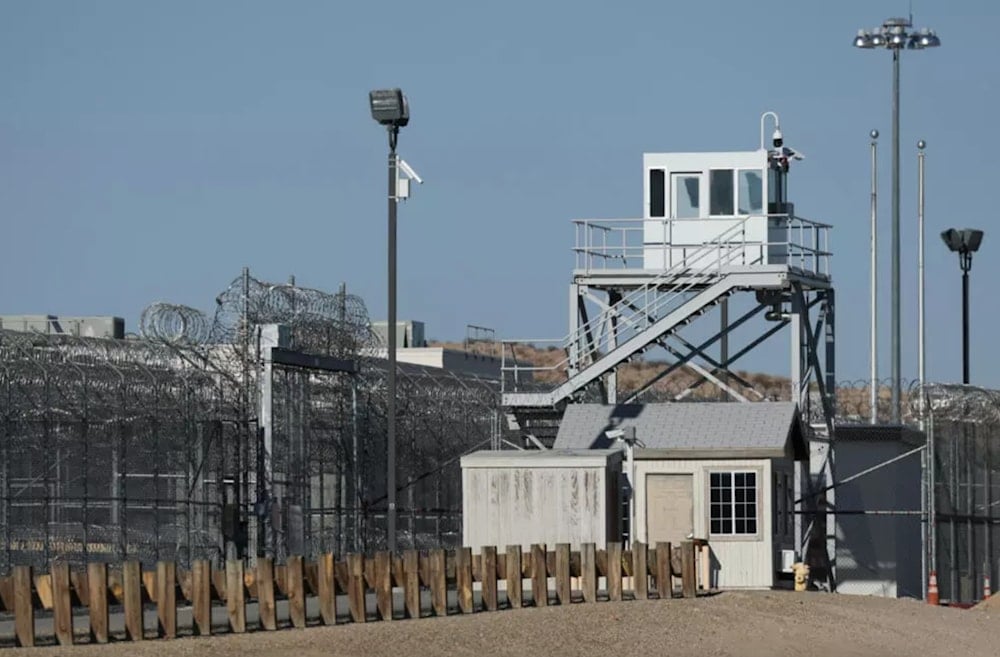Trump's deportation surge fuels private detention boom
Trump's mass deportation plan is fueling a boom in the US private detention industry, turning the suffering of migrants into profit while drawing fierce criticism over human rights violations and systemic exploitation.
-

More than 80 percent of detainees are in facilities run by the private sector, according to research by Syracuse University (AFP)
As US President Donald Trump vows to launch the largest deportation operation in US history, private prison companies are witnessing a surge in demand and cashing in. At the center of this expansion is California City, a struggling desert town 100 miles north of Los Angeles, which is preparing to host a massive new detention center operated by CoreCivic, one of the country’s largest private corrections firms.
"They look at the economic impact, right?" Mayor Marquette Hawkins told AFP, who sees the facility, which promises 500 jobs and $2 million in tax revenue, as a potential lifeline for the impoverished town. "Any revenue source that is going to assist the town in rebuilding itself, rebranding itself, is going to be seen as a plus."
But behind the promise of jobs and tax income lies a troubling truth: tens of thousands of migrants, mostly from Latin America, Africa, and Asia, are being swept into an expanding system of incarceration designed not to protect rights, but to exact economic value from displacement and vulnerability.
Incarcerated Migration
According to ICE data, a record 60,000 people were detained in June, despite the fact that most had committed no crimes. Over 80% of these individuals are locked in privately-run facilities, a number that has exploded since Trump’s return to the political stage. "Never in our 42-year company history have we had so much activity and demand for our services as we are seeing right now," boasted CoreCivic CEO Damon Hininger on a call with investors in May.
This industrial-scale detention expansion is being bankrolled by Washington, which has allocated $45 billion for new infrastructure and enforcement. These policies disproportionately target people from poorer, war-torn, or climate-affected regions, individuals who migrate not by choice, but by survival.
Read more: Democratic lawmakers press Homeland Security chief over masked agents
Profiting Pain
Democratic Congresswoman Norma Torres denounced the system from outside a detention center in Adelanto, California, where the private GEO Group now holds hundreds. "Private prison companies are profiting from human suffering, and Republicans are allowing them to get away with it," she said. After being denied entry to the facility for failing to give seven days’ notice, Torres warned, "Denying members of Congress access to private detention facilities like Adelanto isn't just disrespectful, it is dangerous, it is illegal, and it is a desperate attempt to hide the abuse happening behind these walls."
These abuses, say advocates, include denial of medical care, prolonged isolation, and barriers to clean water and legal counsel. Kristen Hunsberger, a staff attorney at the Law Center for Immigrant Advocates, reported one client waited "six or seven hours to get clean water," while many others are denied access to lawyers, despite their constitutional rights.
Detention Economy
In the face of these allegations, both ICE and the Department of Homeland Security have issued blanket denials. "Claims there is overcrowding or subprime conditions in ICE facilities are categorically FALSE," said DHS Assistant Secretary Tricia McLaughlin.
But according to experts, the pattern is familiar: the weaponization of borders, the commodification of human beings, and the deployment of privatized violence, all in the name of national security and economic recovery. As countries across Africa, Asia, and Latin America host millions of displaced people with limited resources, the US pours billions into a militarized detention regime that turns human desperation into corporate profit.
Read more: 500,000 people could leave the US in 2025, prompting economic disaster
What is unfolding in the US is not simply an immigration crisis, it is a mirror of the world order: a system that punishes mobility while benefiting from inequality. For immigrants, the message is clear: your displacement is our revenue.

 4 Min Read
4 Min Read










